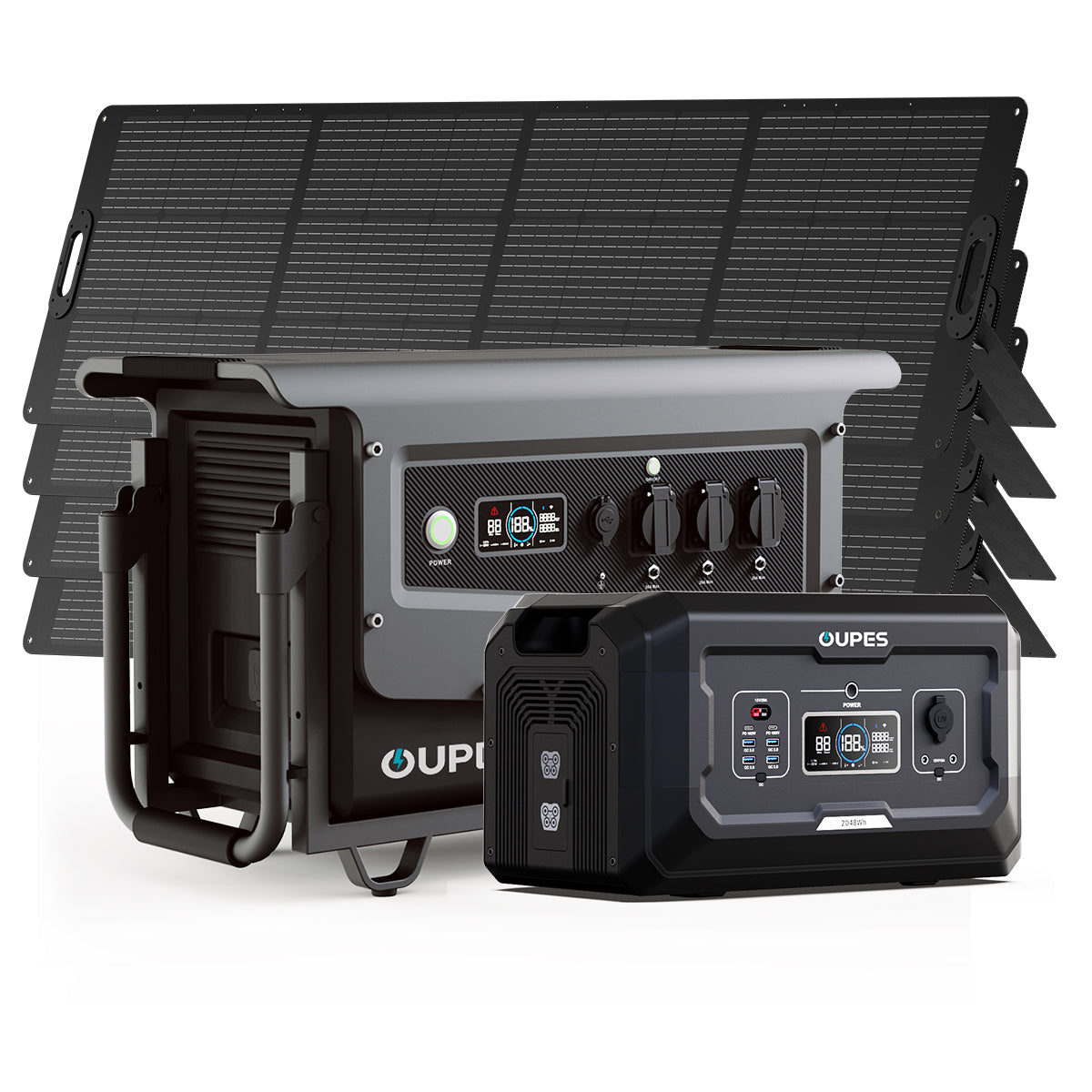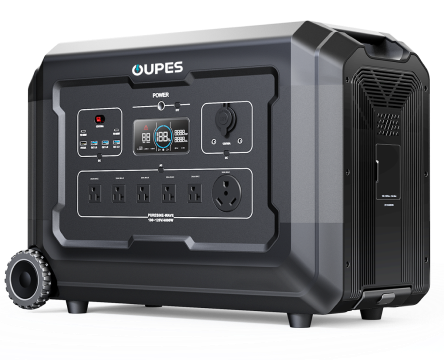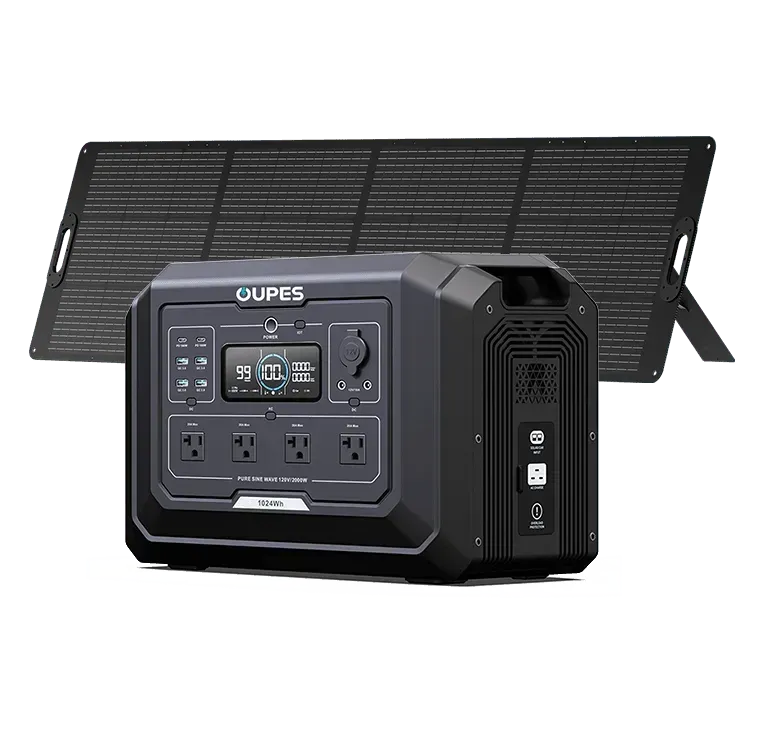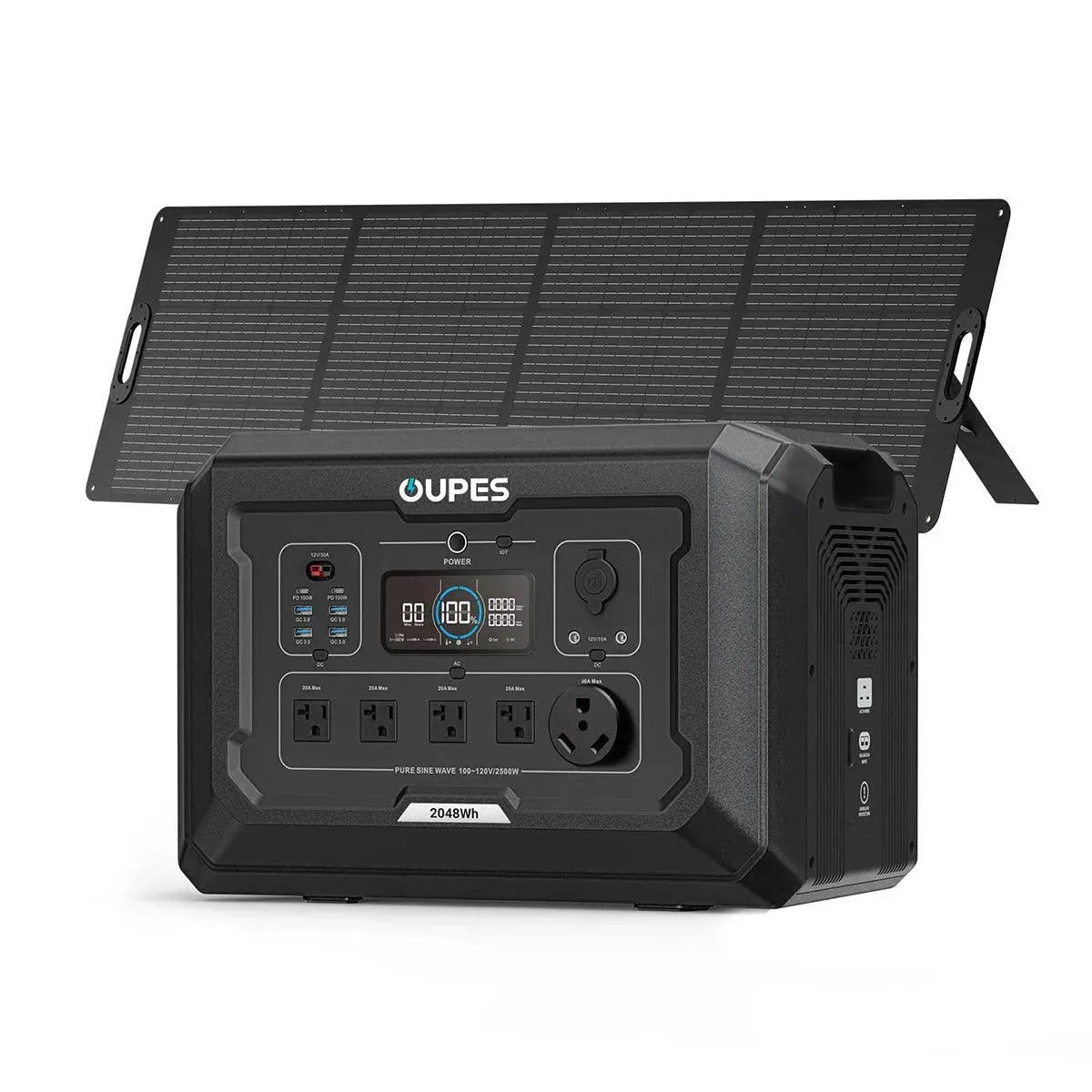
Imagine powering your essentials without relying on the grid, enjoying silent energy generation, and making an eco-conscious choice—all in one go. That’s the promise of solar power generators. But are they truly worth the investment?
With climate concerns and energy prices driving interest in renewable solutions, solar generators have gained popularity among homeowners, campers, and emergency preppers. Yet, for many, the cost and power limitations raise questions about their actual value.
In this article, we’ll explore whether solar power generators are a worthwhile investment by examining their performance, long-term savings, environmental impact, and ideal use cases. Whether you're considering a backup power source or going off-grid, you’ll find the insights you need to decide if solar generators are right for you.
Understanding How Solar Power Generators Work
Solar power generators convert sunlight into electricity using a combination of solar panels and a battery-powered generator. These systems typically consist of four major components: the solar panels, charge controller, battery storage, and an inverter. Together, they form a self-contained power solution that can operate independently of the grid.
During daylight hours, the solar panels capture sunlight and convert it into direct current (DC) electricity. This electricity is sent through the charge controller, which regulates the flow of energy to prevent overcharging the battery. Once stored in the battery, the energy can be used later—even when the sun isn’t shining. The inverter converts the DC electricity into alternating current (AC), which powers most of our everyday devices and appliances.
Unlike gas-powered generators, solar models don’t rely on fuel, making them cleaner, quieter, and easier to maintain. Many solar generators are portable, offering flexibility for use in RVs, campsites, or remote cabins. Others are stationary systems designed to power homes during outages or supplement grid electricity.
These systems vary in capacity, from small 300Wh units meant for charging phones and lights to larger 2000Wh+ systems capable of running refrigerators, TVs, and other household essentials. Some even allow for battery or solar panel expansion, providing scalability as power needs grow.
Understanding how a solar generator works helps set expectations on its performance, efficiency, and best use scenarios, laying the groundwork for evaluating its overall worth.
The Benefits of Using Solar Power Generators
Solar power generators offer numerous benefits, making them attractive to a wide range of users. One of the most significant advantages is their environmental impact. By harnessing solar energy, these generators produce zero emissions, helping to reduce your carbon footprint and reliance on fossil fuels.
Another major benefit is the operational silence. Unlike traditional generators that are loud and disruptive, solar generators run silently, making them ideal for residential areas, campsites, or RV parks where noise ordinances may be in place. This also contributes to a more peaceful user experience.
Solar power generators also offer tremendous convenience. There’s no need to store or transport fuel, and minimal maintenance is required. You simply position the solar panels, let them charge, and tap into stored energy when needed. Many modern models feature intuitive LCD displays and smart app integration to monitor power usage and charging efficiency.
Financial savings are another compelling reason to invest in solar generators. While the upfront cost can be high, the long-term savings on fuel and electricity bills can offset the initial investment. For off-grid users or those living in areas prone to blackouts, the reliability of solar energy provides not just savings but also peace of mind.
Additionally, solar generators are extremely versatile. They’re used for home backup power, outdoor adventures, remote work setups, medical device support, and even disaster relief operations. Their portability allows for on-the-go energy access, while their clean operation makes them safe for indoor use.
From eco-friendliness and quiet operation to financial and practical advantages, solar generators bring real value across various lifestyle and emergency scenarios.
Cost Considerations and Return on Investment
One of the most common questions surrounding solar generators is whether the cost is justified. At first glance, solar power generators seem expensive—especially when compared to traditional gas-powered alternatives. However, a deeper analysis of their return on investment (ROI) can shift this perception.
Entry-level solar generators typically start around $300–$500, while high-capacity models with extended battery storage can range from $1000 to over $3000. Add to that the cost of solar panels (which may be included or sold separately), and the total upfront investment can easily exceed $2000 for a complete setup.
While this may sound steep, it's important to factor in long-term savings. Solar energy is free, meaning once you've covered the hardware cost, your operating expenses are near zero. Over time, this can lead to significant savings—especially for those who use generators frequently or live in areas with high electricity costs.
Additionally, solar generators are more durable and require less maintenance. There are no moving parts, no oil changes, and no fuel degradation, unlike gas generators. A well-maintained solar generator can last 10+ years with minimal upkeep, further enhancing its cost-effectiveness over time.
It’s also worth noting that solar generator costs are falling. As technology improves and demand increases, prices are gradually becoming more accessible. Government incentives, such as tax credits and rebates, can also help offset costs, depending on your location and installation method.
Ultimately, ROI depends on your use case. For those using solar generators for daily power needs or frequent outdoor use, the value adds up quickly. For occasional backup, the peace of mind and independence may outweigh the financial break-even point.
Limitations and Drawbacks of Solar Generators
Despite their many advantages, solar power generators also come with some limitations that should be considered before making a purchase. These systems, while innovative and eco-friendly, are not perfect substitutes for all types of power needs.
One of the main limitations is power capacity. Even the most advanced portable solar generators are generally not capable of running an entire household for an extended period. High-consumption appliances like HVAC systems, water heaters, and electric stoves often exceed the output or storage capacity of these systems. For full-home power, a larger solar installation with integrated battery storage is typically necessary.
Charging time is another factor to consider. Solar panels depend on weather conditions to generate energy efficiently. Cloudy or rainy days will slow down charging, potentially leaving you short on power if you haven’t adequately stored it in advance. Additionally, solar panels require sunlight for optimal performance, meaning they’re less effective in shaded areas or during winter months with limited daylight.
Portability can also come with trade-offs. While compact and mobile, smaller systems naturally offer lower capacity. Users must balance the convenience of portability with their actual power needs, which may exceed what the system can provide in certain situations.
Upfront costs are another concern. Even though long-term savings can offset the initial investment, not everyone has the budget for a high-end solar generator setup. This can be a barrier for households looking for a quick or inexpensive solution.
Finally, solar generators are not “set and forget” systems. Users must learn to manage energy consumption, monitor charge levels, and position solar panels effectively. While not complex, this hands-on aspect may deter those looking for fully automated solutions.
Understanding these limitations is key to making an informed decision. While not a perfect solution for everyone, solar generators remain an excellent choice for targeted use, especially when paired with energy-conscious planning and realistic expectations.
Ideal Use Cases for Solar Power Generators
Solar power generators shine in a variety of scenarios where their strengths align with user needs. Identifying the right use cases is essential to getting the most value out of your investment.
One of the most common uses is for emergency backup power. During grid outages caused by storms, wildfires, or other natural disasters, solar generators can keep your essentials running. They can power communication devices, medical equipment, lighting, and refrigeration—ensuring safety and comfort when conventional power sources fail.
Outdoor enthusiasts also benefit greatly from solar power generators. Whether you're camping, RVing, or working remotely from a national park, these systems provide silent, renewable energy in remote areas. Without the need for gas, you can generate power off-grid without hauling fuel or worrying about noise complaints.
For homeowners looking to reduce electricity costs or live more sustainably, solar generators can supplement grid power. You can use them to run specific appliances, offset peak-hour energy rates, or power an off-grid shed or greenhouse. In tiny homes or minimalist dwellings, a properly sized solar generator may cover most daily needs.
Small businesses or mobile professionals also benefit from solar power solutions. Food trucks, outdoor markets, mobile clinics, and field offices often need a reliable, clean energy source. Solar generators offer a flexible and cost-effective alternative to installing electrical infrastructure or relying on gas.
Even in educational settings, solar generators serve as practical tools to demonstrate renewable energy principles and encourage sustainable living practices.
The key is matching generator capacity to the specific demands of your use case. When used appropriately, solar generators prove their worth by delivering clean, reliable energy exactly when and where it’s needed.
Conclusion: Are Solar Power Generators Worth It?
The answer to whether solar power generators are worth it ultimately depends on your personal needs, budget, and values. For those seeking clean, quiet, and portable energy solutions, solar generators offer immense benefits—especially for emergency preparedness, off-grid adventures, or supplementing home energy use.
While they do have limitations, particularly regarding power capacity and initial cost, the long-term savings, environmental impact, and operational simplicity often justify the investment. With advancements in technology and growing support for renewable energy, solar generators are becoming increasingly practical and accessible for everyday users.
If you're looking for a reliable backup power source or want to embrace a greener lifestyle, investing in a solar power generator could be a smart and sustainable choice for the future.




























